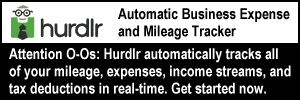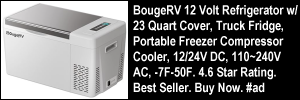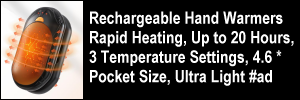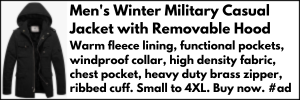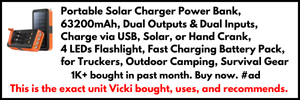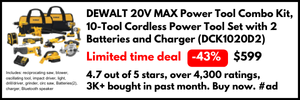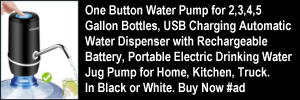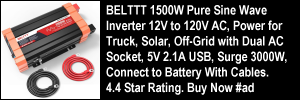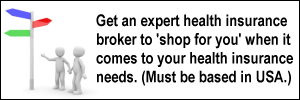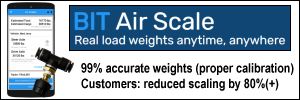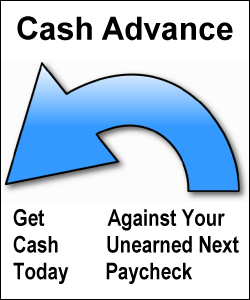 Many trucking companies allow their drivers to get cash advances against their paychecks.
Many trucking companies allow their drivers to get cash advances against their paychecks.
While these “pay day advances” can be particularly helpful in some ways, they can also be abused, as Mike well knows….
You may have read on our money management page the true account of how Mike’s dad, a trucker with a family back home, spent most of one entire paycheck on himself.
How did this happen?
He didn’t wait for the check to be deposited before he spent it. He took out so many cash advances on it that there was practically nothing left!
Mike has worked for more than one trucking company that actually places limits on the dollar amount of advances that can be taken from a paycheck.
This is for a driver’s protection and possibly the protection of his/her family back home. (Note: in some cases, a limit can be overridden, although policies may vary.)
Cash Payments Versus Electronic Payments
In the days in which we live, many financial transactions are taken care of electronically.
Depending on your preferences and circumstances, you may choose to have
- a direct deposit of a paycheck into a checking account,
- automatic withdrawals (or electronic fund transfers) for paying bills or
- regularly scheduled debits from a checking account into a savings account or other investment.
Some folks pay most or all of their bills electronically using computer software for personal finances. Even a simple phone call can get some bills put on a credit card and paid electronically.
However, in order to pay bills electronically or pay for items by debit card from a checking account, there has to be enough money in the account to pay for them.
That’s where things can get tricky. If there’s not enough in the account, a driver may feel justified in taking money against a future paycheck — or putting things on credit.
Some folks may say that getting a cash advance is just like getting cash from an ATM and that the only difference is timing.
A payday advance comes out of your anticipated paycheck while a cash withdrawal comes out of what’s already been deposited into your account.
That’s a fair comparison.
Personal Spending Versus Business Spending
 For purposes of clarification, we’re specifically zeroing in on cash advances for personal expenses, not business expenses.
For purposes of clarification, we’re specifically zeroing in on cash advances for personal expenses, not business expenses.
But let’s look at business expenses for just a bit.
Some trucking companies have a system whereby P.O. (purchase order) numbers are issued for expenses like lumper fees and truck washes.
Or they may provide authorization for Comchecks to be written.
We recall the time when we drove for Swift when we had a delivery in the northeastern USA where the lumper fee was in the $300 range — in cash.
Of course, being so fresh out of truck driver training school, we didn’t have that kind of cash on us, so we had to drive quite a distance to a truck stop, get a Comcheck cashed and then drive all the way back just to get the trailer unloaded.
Note: setting up and maintaining a “truck fund” — which is separate from a personal emergency fund — can help you pay for things like cash-only lumper fees or non-electronic tolls.
Anytime you pay cash for any expense, you should get a receipt — particularly if you are submitting the receipt for reimbursement.
But pressing on…
Where Are You Spending Your Cash Advances?
As we mention on our budgeting page, it’s a really good idea if you keep a spending diary to keep track of all of your expenses.
Good questions to ask and answer include:
- How much money do you spend?
- What do you spend your money on?
- What were you feeling when you wanted to spend?
Answering these questions may help you learn your spending weaknesses.
For example, perhaps you spend your cash advances on entertainment or clothing or chrome for your truck.
If you can identify the trend, that’s half the battle.
Cash Versus Credit or Debit
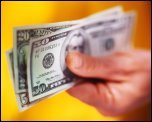 Another aspect to this subject is why you need to have a cash advance at all. Why not use a debit or credit card instead?
Another aspect to this subject is why you need to have a cash advance at all. Why not use a debit or credit card instead?
We were in a grocery store not long ago behind a lady who was paying for her purchases by check. Mike wondered aloud to Vicki about that after we left the store.
Vicki said that we can’t judge the lady’s situation: perhaps she had run into trouble with credit card abuse in the past and felt it was better to limit herself to spending only what was in her checking account.
Or maybe she didn’t have a debit card.
Or maybe she couldn’t get credit.
Or maybe she didn’t want to have her spending tracked by a bank or credit card company.
Who knows?
Still, knowing why you use a certain type of payment for your purchases is good, too.
Some futurists predict a time when certain national economies are going to collapse.
When that happens, they say, one of the first things to get shut down will be the credit card industry and all electronic transactions.
We don’t buy into ultra doom-and-gloom scenarios, but we do believe in being prepared.
If you have come to depend on getting cash advances, will you have what you need to tide you over in a bind should an event like this actually occur?
I’ve Got Cash! (When Can I Spend It?)
 For some folks, having money (particularly large sums of money) in one’s wallet is practically irresistible.
For some folks, having money (particularly large sums of money) in one’s wallet is practically irresistible.
An idiom that UsingEnglish.com describes goes this way: “If someone has money burning a hole in their pocket, they are eager to spend it, normally in a wasteful manner.” (emphasis added)
You may have seen articles online answering the question as to whether or not people spend more money when using credit cards than when using cash.
One article said the study doesn’t exist, the author of another article put the theory to test himself, and a third provided this quote:
“Credit cards effectively anesthetize the pain of paying,” said George Loewenstein, Carnegie Mellon professor of social and decision sciences (SDS) and co-author of the paper. “You swipe the card and it doesn’t feel like you’re giving anything up to make the purchase, unlike paying cash where you have to hand over bills.”
OK, so cash advances may be what keeps some people from racking up a huge balance on their credit card statement.
In other words, with cash but no credit, you can’t spend what you don’t have.
It works sort of on the same basis as a prepaid cell phone like TracFone. Once the minutes or airtime — or in our case on this page, the cash — runs out, that’s it!
Purposefully limiting your cash expenditures can be a very good thing, especially for those who have a tendency to overspend.
Family Money Problems
If you’re married, do yourself a favor by discussing the issue of taking cash advances with your spouse ahead of time. This is especially important if your spouse is back home paying the household bills from your paycheck alone.
The person at home doesn’t need the added stress of trying to pay bills from an inadequate deposit while you may be living “footloose and fancy free” or “high on the hog” on the road.
Disagreements about money can have really bad results.
According to an article from Family Life Today, Dennis Rainey said:
“Larry Burkett once told me that of all the couples who divorce in America, between 85 and 90 percent would say the number one problem in their marriage is money. They are unable to agree on how to handle it, save it, spend it, give it, budget it, account for it and keep from arguing about it. In many cases, it’s the heavy debt and the pressure of watching it compound ever higher – with no easy solution for bringing it down – that causes a marriage to fall apart.”
Mike speaks from personal experience of having been raised in a broken home. He says that if you think the issue of communicating with your spouse about money is not important, consider the high cost of a divorce, especially if children are involved.
For balance, some folks like the freedom of having what Vicki’s mom calls “mad money,” to spend on whatever is desired without having to give an account for it. As long as both spouses agree, this can be a very freeing thing.
Keep your home support team “in the loop” regarding expenses. We urge couples to discuss their financial habits and goals regularly.
Cash Advances and Discipline
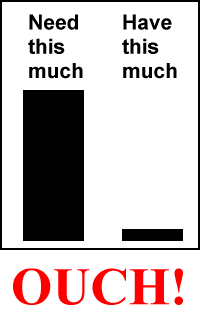 As with any aspect of financial management, cash advances must be monitored, too.
As with any aspect of financial management, cash advances must be monitored, too.
For example, if you took $100 against your upcoming weekly paycheck in order to cover certain meals during the week — let’s say 8 meals for no more than $12.50 each (meal, tax and tip) — but you spend $20 each on 5 meals, you’ll be 3 meals short!
How would you like not being able to eat for an entire day — or eat something other than what you want?
It’s something to consider seriously if you choose not to discipline yourself with the cash advance you have!
Splurging can be fun but it can bring negative consequences, too. We’ve put it in image form here: Need this much (large column), Have this much (small column), OUCH!
We know that in trucking, there’s no way to plan ahead for absolutely everything, but you can set up protections for yourself as much as possible.
It is no fun to be stranded away from home without enough cash to even get back home!
Resources that Help
We can wholeheartedly recommend the following resources from the late Larry Burkett, links of which are from Amazon.com, with which we have an affiliate relationship:
![]() Money saving tip: Remember that whenever you take a cash advance, you are removing money from your upcoming paycheck. It is not “free” money.
Money saving tip: Remember that whenever you take a cash advance, you are removing money from your upcoming paycheck. It is not “free” money.
If you’re used to having a certain amount of income and it has been reduced by the amount you took in one or more cash advances, you may be caught short when you need to pay for something.
Be cautious about splurging or making impulse purchases. Evaluate the difference between your needs and your wants.
If you limit your wants, you may find that you look forward to them more than if you got wants more often.
Learn to distinguish and separate business and personal expenses. Set up a truck fund to pay for business expenses and an emergency fund to pay for your own emergencies.
Plan ahead. Save some money from a current paycheck to pay for things you may need later. Set goals for yourself.
Refrain from using cash advances for the purpose of saving. Set up a separate account for savings.
If you are the kind of person who is tempted by a growing savings account, put it in a hard-to-access place so that the temptation to tap it is reduced.
Don’t forget to document every cash advance so that you won’t be surprised when you get your check or see your pay stub.
In fact, to make sure that every amount is accounted for, you may wish to vary the amounts of cash advances, such as $40 this time, $50 next time, etc.
If you track your expenses on a computer, be sure to note every draw you’ve taken. Do not allow yourself to forget to make the entry or enter the amount more than once.
Return from On Cash Advances: Pros and Cons for Professional Truck Drivers to our Budgeting page or our Truck Drivers Money Saving Tips home page.

